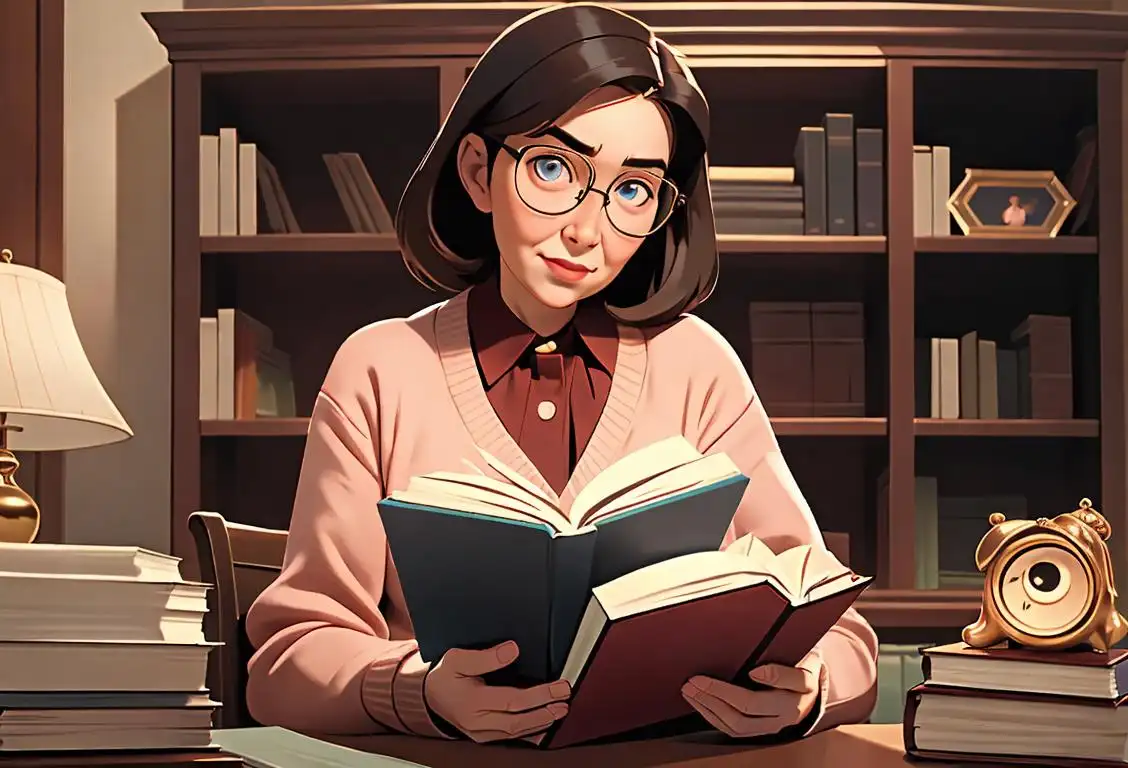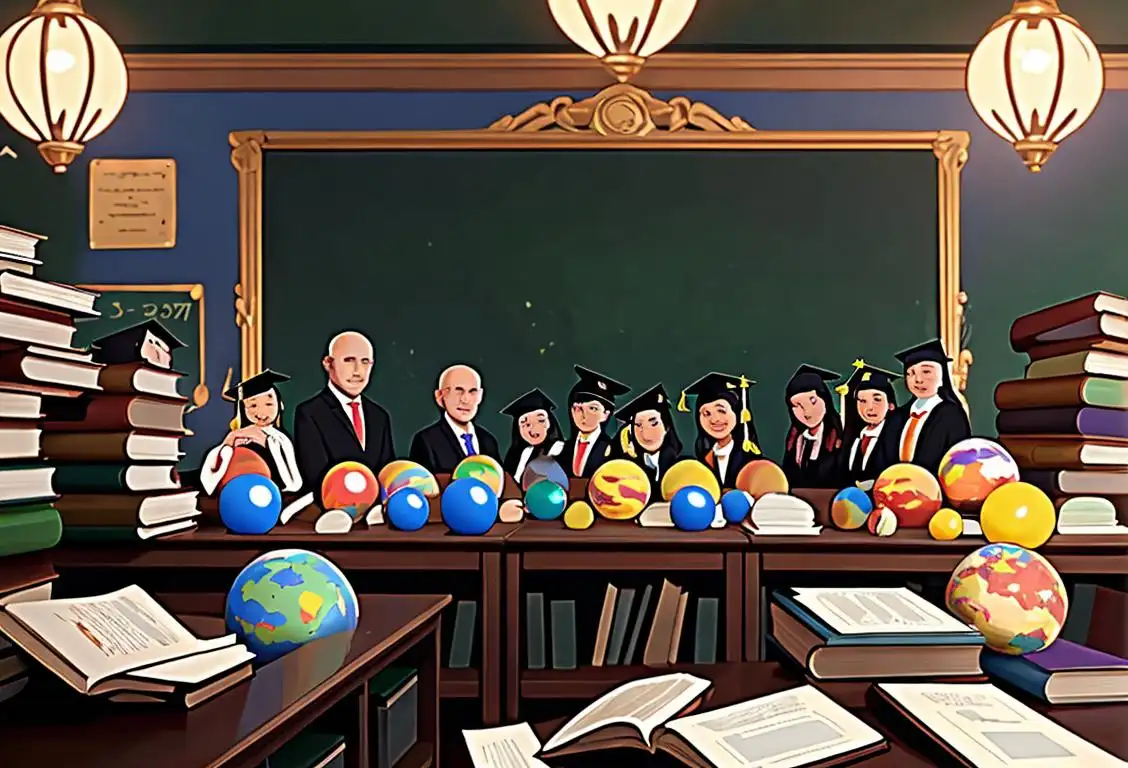National Librarian Day

What do you get when you cross a super intelligent search engine with a bookworm and a friend that's always got a great movie recommendation up their sleeve? The answer is your local librarian. On National Librarian Day, we put on our reading glasses (even if we don't need them), pull out our overdue library books (we all have them), and celebrate the marvelous individuals that keep our libraries buzzing. Let's shimmy down this book-lined rabbit hole together!
When is Librarian Day?
It's national librarian day on the 16th April.
A Trip Down Memory (Book)Lane
With a whopping 2084 mentions in the vast internet kingdom, National Librarian Day has certainly left its mark. While whispers of this day can be traced back to various origins, the most mentions were tallied on April 16th, 2019. Yes, it seems that this year, the bookworms really decided to turn up the volume.
Books, Bytes, and Beyond
Libraries have always been timeless treasure troves of knowledge, teeming with tales of adventure, romance, and wisdom. Librarians, the tireless treasure keepers, have navigated this sea of knowledge for centuries. In the modern world, however, their job doesn't stop at the books. They have truly embraced the digital age, helping patrons navigate databases, e-books, and even a sprinkle of internet shenanigans.
Gratitude is Due
So how does one celebrate National Librarian Day? Start by returning that overdue book (you know the one we're talking about). You can also show gratitude by simply telling your librarian, in person or online, how much you appreciate them. Just remember not to shout...libraries, remember?
Why We Celebrate
Behind the serene and studious facade of the library are the brilliant, multi-talented individuals called librarians. They spin a variety of plates, mastering the latest in technology while preserving ancient texts, raising a new generation of readers while catering to enthusiastic bookworms of old, and occasionally being therapy-cum-career counselors for the lost souls between the stacks.
Ever Ready, Eternally Resourceful
Whether it's finding that elusive journal article or recommending the perfect book for a rainy day, librarians have done it all with a smile and a 'shush!'. On National Librarian Day, let's join the 2084 internet folks and tip our hats to these guardians of the written word who put the 'nation' in 'information'.
History behind the term 'Librarian'
2600 BC
Ancient Scribes
During the time of the ancient Sumerians in Mesopotamia, individuals known as scribes were responsible for maintaining and organizing written records. These scribes were considered the precursors to librarians, as they stored and cataloged various clay tablets containing information on subjects such as history, religion, and literature.
600 BC
Library of Ashurbanipal
In the seventh century BC, the Library of Ashurbanipal was established by King Ashurbanipal in Nineveh, ancient Assyria (present-day Iraq). This library contained an extensive collection of clay tablets, making it one of the earliest known libraries in human history. Its librarians played a crucial role in the organization and preservation of knowledge.
300 BC
Library of Alexandria
Established in the 3rd century BC in Alexandria, Egypt, the Library of Alexandria is one of the most famous libraries in history. It aimed to collect all knowledge in the world and became a hub for scholars, philosophers, and intellectuals. Librarians of Alexandria were responsible for acquiring and categorizing scrolls, creating comprehensive catalogs, and even engaging in scholarly debates.
18th Century
Library Societies
During the 18th century, library societies started to emerge, particularly in Europe and North America. These societies focused on promoting knowledge and literacy by establishing lending libraries accessible to the public. The librarians of these societies were instrumental in curating book collections, maintaining borrowing systems, and supporting the intellectual growth of their communities.
1876
Melvil Dewey and the Dewey Decimal System
In 1876, librarian Melvil Dewey proposed a revolutionary classification system known as the Dewey Decimal System. This system assigned numeric codes to various subjects, creating a standardized way to organize books in libraries. Dewey's system greatly enhanced the efficiency of librarians, allowing them to locate and retrieve books more easily for readers.
20th Century
Library Science and Professionalization
In the 20th century, the field of library science emerged as an academic discipline. Librarians started to receive formal education and training in library management, information organization, and research techniques. This professionalization of librarianship led to the development of a more systematic approach to cataloging, archiving, and providing information services.
Did you know?
Did you know that the first recorded librarian, Zenodotus of Ephesus, was appointed by Ptolemy I in the 3rd century BC? Now that's a legacy!Tagged
celebration appreciation knowledge books librarianFirst identified
12th April 2015Most mentioned on
16th April 2019Total mentions
2084Other days
Librarian Day
Hug A Newsperson Day
Employee Appreciation Day
Association Of Day
School Librarian Day
Parents Day
Bosses Day
Teacher Day
Libraries Day
Lineman Day








